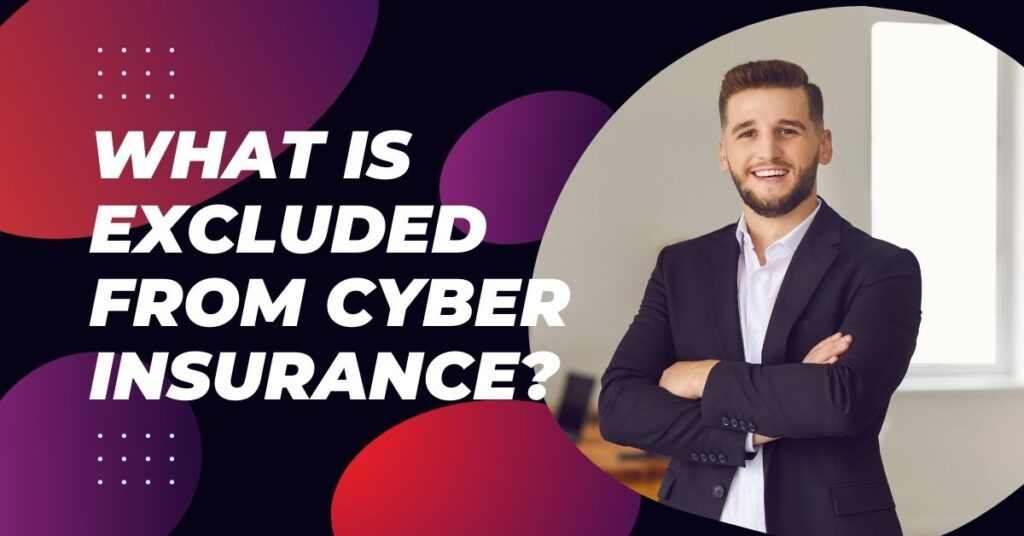Physical Address
304 North Cardinal St.
Dorchester Center, MA 02124

In an era where cyber threats are escalating in both frequency and sophistication, businesses of all sizes are increasingly vulnerable to attacks that could cripple their operations. Cyber insurance has emerged as a crucial safety net, designed to mitigate the financial and operational damages caused by cyber incidents. Among the leaders in this domain, Silverfort offers robust cyber insurance solutions that provide comprehensive coverage tailored to the unique risks faced by modern enterprises.
Cyber insurance, also known as cyber liability insurance, is a type of insurance policy designed to protect businesses against the financial consequences of data breaches, cyber-attacks, and other cyber-related incidents. This type of insurance typically covers costs related to the loss of data, business interruption, legal fees, and damage control measures following a cyber event.
The digital transformation of business operations has exponentially increased the attack surface for cybercriminals. Companies are now more reliant on digital infrastructures, which, while beneficial, also pose significant risks. The aftermath of a cyberattack can be devastating, leading to loss of revenue, reputational damage, and even legal repercussions. Cyber insurance coverage helps businesses navigate these challenges by providing financial assistance and resources to recover from such incidents.
Silverfort is renowned for its innovative approach to cybersecurity, offering a suite of services that include cyber insurance as a critical component of its offerings. Silverfort’s cyber insurance is designed to be comprehensive, covering a wide range of potential risks that businesses might face in the digital landscape.
Silverfort’s cyber insurance policy covers a broad spectrum of risks, ensuring that businesses are protected against the most common and the most severe types of cyber threats. Key areas of coverage include:

Silverfort’s cyber insurance is not just about financial protection; it’s about providing businesses with the peace of mind that comes from knowing they have a partner who understands the intricacies of cyber risk management. Here’s why Silverfort stands out:
Every business is unique, and so are the cyber risks they face. Silverfort offers tailored coverage options that align with the specific needs of your organization, ensuring that you are not overinsured or underinsured. This customization allows businesses to invest in coverage that truly reflects their risk profile.
In addition to offering insurance coverage, Silverfort provides proactive risk management services that help businesses identify and mitigate potential vulnerabilities before they can be exploited. This includes regular security assessments, employee training programs, and advanced threat detection capabilities.
Silverfort operates on a global scale, offering coverage to businesses around the world. However, they also understand the importance of local expertise. Silverfort’s cyber insurance policies are designed to comply with local regulations and industry standards, ensuring that your business is protected no matter where it operates.
Integrating Silverfort’s cyber insurance into your business operations is a straightforward process, but it requires careful planning and execution to ensure maximum protection. Here’s a step-by-step guide:
The first step in securing cyber insurance coverage is to conduct a comprehensive cyber risk assessment. This involves evaluating your current cybersecurity posture, identifying potential vulnerabilities, and assessing the potential impact of various cyber threats. Silverfort offers tools and services to assist in this process, helping you gain a clear understanding of your risk landscape.
Once the risk assessment is complete, Silverfort will work with you to customize your cyber insurance policy. This involves selecting the appropriate coverage options based on your risk assessment and ensuring that your policy aligns with your business’s specific needs.
In addition to securing insurance coverage, it’s essential to implement risk management strategies that reduce your exposure to cyber threats. Silverfort’s team of experts can provide guidance on best practices, such as enhancing your network security, implementing multi-factor authentication, and conducting regular employee training.
Cyber threats are constantly evolving, and so should your cyber insurance policy. It’s important to regularly review and update your policy to ensure that it continues to provide adequate protection as your business and the cyber threat landscape change.

As cyber threats continue to evolve, the role of cyber insurance will become increasingly vital in the business world. Silverfort is at the forefront of this evolution, constantly innovating and expanding its offerings to meet the growing needs of businesses in the digital age.
One of the most significant trends in cyber insurance is the shift towards more proactive and preventative measures. Insurers, including Silverfort, are focusing not just on covering losses after an incident but also on helping businesses prevent incidents from occurring in the first place. This proactive approach includes offering cybersecurity tools, risk assessments, and employee training as part of the insurance package.
Another emerging trend is the integration of cyber insurance with other types of business insurance. Silverfort is exploring ways to offer more comprehensive packages that combine cyber insurance with general liability, property, and professional liability insurance, providing businesses with a more holistic risk management solution.
Silverfort is committed to staying ahead of the curve in the cyber insurance industry. The company is continually investing in research and development to enhance its offerings and provide businesses with the most advanced protection available. From developing new risk assessment tools to integrating cutting-edge technologies like artificial intelligence into its services, Silverfort is dedicated to helping businesses navigate the ever-changing cyber threat landscape.
Cyber insurance provides a range of coverages designed to mitigate the financial impact of a cyberattack. Here’s what is typically included:
When a data breach occurs, the costs can be staggering. Cyber insurance covers expenses related to breach notifications, credit monitoring for affected individuals, legal fees, and forensic investigations.
A cyber incident can bring operations to a halt, resulting in lost income. Cyber insurance can cover the revenue lost during downtime, along with any additional expenses incurred to get the business back up and running.
Ransomware attacks are on the rise, and the costs associated with them can be crippling. Cyber insurance typically covers the ransom payment as well as the costs of negotiating with cybercriminals.
If your business faces lawsuits due to a cyber incident, cyber insurance can cover defense costs and any settlements or judgments that may arise.
With data protection regulations becoming stricter, fines and penalties from regulatory bodies are a real threat. Cyber insurance can cover these costs, protecting your business from severe financial penalties.

While cyber insurance offers extensive coverage, there are common exclusions to be aware of:
Cyberattacks classified as acts of war or terrorism are often excluded from coverage. Insurers may argue that such incidents fall outside the scope of the policy.
If an insider, such as an employee, deliberately or negligently causes a breach, it may not be covered by the policy. Companies need to address insider threats with their security protocols.
Incidents that occurred before the start date of the policy or were known to the company but not disclosed to the insurer are typically excluded.
If your company fails to meet contractual obligations, resulting in a breach, cyber insurance may not cover the associated costs.
Data breaches involving unencrypted data might not be covered, emphasizing the importance of strong encryption practices.
Filing a cyber insurance claim involves several steps:
As soon as a cyber incident occurs, it’s crucial to notify your insurer immediately. Delaying this step could jeopardize your coverage.
Gather and submit all relevant documentation, including incident reports, forensic analyses, and any other evidence that supports your claim.
Insurers typically conduct their investigations. It’s important to cooperate fully with their process to ensure your claim is processed smoothly.
The time it takes to process a claim can vary. Be prepared for an investigation period where the insurer evaluates the validity of the claim.
Once the claim is approved, the insurer will determine the payout amount based on the coverage limits and any deductibles. Payments are usually made promptly after this determination.
The cost of cyber insurance premiums can vary widely depending on several factors:
Larger businesses typically face higher premiums due to their increased risk and potential losses.
Certain industries, such as healthcare and finance, are considered higher risk, leading to higher premiums.
Having robust cybersecurity measures in place, such as Silverfort, can reduce premiums. Insurers often provide discounts to companies with strong security postures.
Higher coverage limits and lower deductibles will increase the cost of the premium. It’s important to balance the cost with the level of protection needed.
If your business has a history of cyber insurance claims, you can expect higher premiums. Insurers view previous claims as indicators of risk.
Cyber insurance providers increasingly require businesses to implement MFA as part of their coverage conditions. Silverfort excels in this area, offering a comprehensive MFA solution that meets or exceeds the requirements of most cyber insurance policies.
Silverfort’s MFA solution is designed to protect against unauthorized access, a key requirement for cyber insurance compliance. By implementing MFA across all access points, Silverfort ensures that businesses are well-positioned to meet insurance requirements.
Silverfort also implements Zero Trust principles, further enhancing compliance. By continuously validating the authenticity of user identities, Silverfort adds an additional layer of security that aligns with the stringent requirements of modern cyber insurance policies.
Several businesses have successfully met their cyber liability compliance requirements with Silverfort. These case studies highlight the platform’s effectiveness in enhancing security and ensuring compliance.
The combination of cyber insurance and Silverfort provides a holistic approach to cybersecurity. Here’s how they work together:
Silverfort helps mitigate the risks of cyberattacks by implementing robust identity protection measures. This reduces the likelihood of a successful attack and, consequently, the need to file an insurance claim.
With Silverfort in place, businesses can confidently meet the stringent requirements of cyber insurance policies, ensuring that their coverage remains intact.
By integrating cybersecurity tools like Silverfort with cyber insurance, businesses create a comprehensive defense strategy. This synergy protects both a preventive and a reactive standpoint.
Investing in both cyber insurance and Silverfort is a prudent decision for businesses of all sizes. Here’s why:
Cyber insurance provides financial protection, while Silverfort offers proactive security measures. Together, they form a comprehensive shield against cyber threats.
Knowing that your business is protected by both Silverfort and a robust cyber insurance policy provides peace of mind. This dual investment ensures that you’re prepared for both preventing and responding to cyber incidents.
In today’s digital age, cybersecurity is no longer just a technical issue; it’s a critical business concern. The rise in cyber threats—from data breaches to ransomware—has made it clear that every organization, regardless of size, needs to be prepared. This preparation isn’t just about having the right cybersecurity tools like Silverfort; it also involves having a safety net in the form of cyber insurance. But why exactly is cyber insurance so essential for SilverFort users? Let’s explore this.
The combination of Silverfort and cyber insurance creates a comprehensive defense strategy. Silverfort reduces the likelihood of a successful attack by protecting identities and controlling access, while cyber insurance ensures that, should an attack succeed, the financial impact is mitigated. For instance, if a data breach occurs despite Silverfort’s protection, cyber insurance can cover the costs of notifying affected individuals, providing credit monitoring services, and dealing with potential lawsuits.
Understanding the types of cyber insurance coverage available is crucial for any business.
This type of insurance covers the direct costs your business incurs due to a cyberattack. This can include expenses related to data recovery, business interruption, and public relations efforts to manage the fallout from an attack.
Third-party coverage protects your business against claims made by customers or other third parties affected by a cyber incident. This is particularly important if a breach of your systems leads to the exposure of sensitive customer data.
Some policies offer coverage for specific threats like ransomware, which has become a major concern in recent years. Ransomware coverage typically includes the cost of paying a ransom (if necessary) and restoring data from backups.
Cyber insurance and Silverfort work hand-in-hand to provide a well-rounded security approach. While Silverfort’s MFA and identity protection tools significantly reduce the risk of a breach, insurance steps in when things go wrong. This dual approach ensures that your business is protected on all fronts. For example, if a sophisticated phishing attack bypasses Silverfort’s defenses and leads to a data breach, cyber insurance can cover the associated costs, minimizing the financial damage.
The cyber insurance landscape is evolving, with insurers now imposing stricter requirements on businesses seeking coverage. One of the key changes is the increased emphasis on MFA. Insurers are recognizing that MFA is one of the most effective ways to prevent unauthorized access and are making it a mandatory requirement for coverage.
The rise in cyber threats has led insurance brokers to reevaluate the risks they are willing to cover. MFA has emerged as a critical tool in preventing breaches, particularly in a world where password-based security is no longer sufficient. By requiring businesses to implement MFA, brokers are ensuring that companies take proactive steps to reduce their risk, ultimately leading to fewer claims and more sustainable insurance practices.
In today’s digital world, cyber insurance is not just an option; it’s a necessity. Silverfort’s comprehensive cyber insurance solutions offer businesses the protection they need to withstand the growing threats of cybercrime. By providing tailored coverage options, proactive risk management services, and a commitment to innovation, Silverfort ensures that your business is not only protected but also well-prepared to face the challenges of the digital age.
For more information on how Silverfort can help protect your business with its cyber insurance solutions, visit their website or contact a Silverfort representative today.
Cyber insurance is crucial for Silverfort users as it provides financial protection against risks that even advanced security platforms may not fully eliminate, such as legal liabilities and business interruption.
Yes, using advanced security measures like Silverfort can potentially lower your cyber insurance premiums, as it reduces the overall risk profile of your organization.
Look for a policy that covers identity-based attacks, legal liabilities, business interruption, and endorsements for emerging threats not fully addressed by Silverfort.
Silverfort provides detailed logs and reports that can support the claims process by offering clear evidence of the breach and the effectiveness of your security measures.
Yes, some insurers specialize in cyber insurance and have experience working with companies that use advanced security technologies, like Silverfort, offering more tailored coverage options.
Saqib Hussain, the mastermind behind the thought-provoking WORLD NEWS, is a prolific author renowned for his insightful exploration of news, artificial intelligence, finance, science, and technology. Graduating with a master’s degree in creative writing from Oxford University, saqib Hussain’s educational background shines through in his meticulously crafted prose.
Hussain’s unique blend of in-depth research and keen observation sets him apart in the literary world. His passion for books, technology, finance, and artificial intelligence infuses his writing with depth and clarity that captivates readers from all walks of life. Beyond his literary pursuits, Hussain finds inspiration in sports, entertainment, and the ever-evolving landscape of technology.
Through his writing, Hussain sheds light on crucial issues shaping our world today, offering a fresh perspective that challenges readers to think critically. With an unwavering commitment to excellence and a profound understanding of his craft, Saqib Hussain continues to shape the narrative of our time, leaving a lasting impact on those who delve into his compelling works.